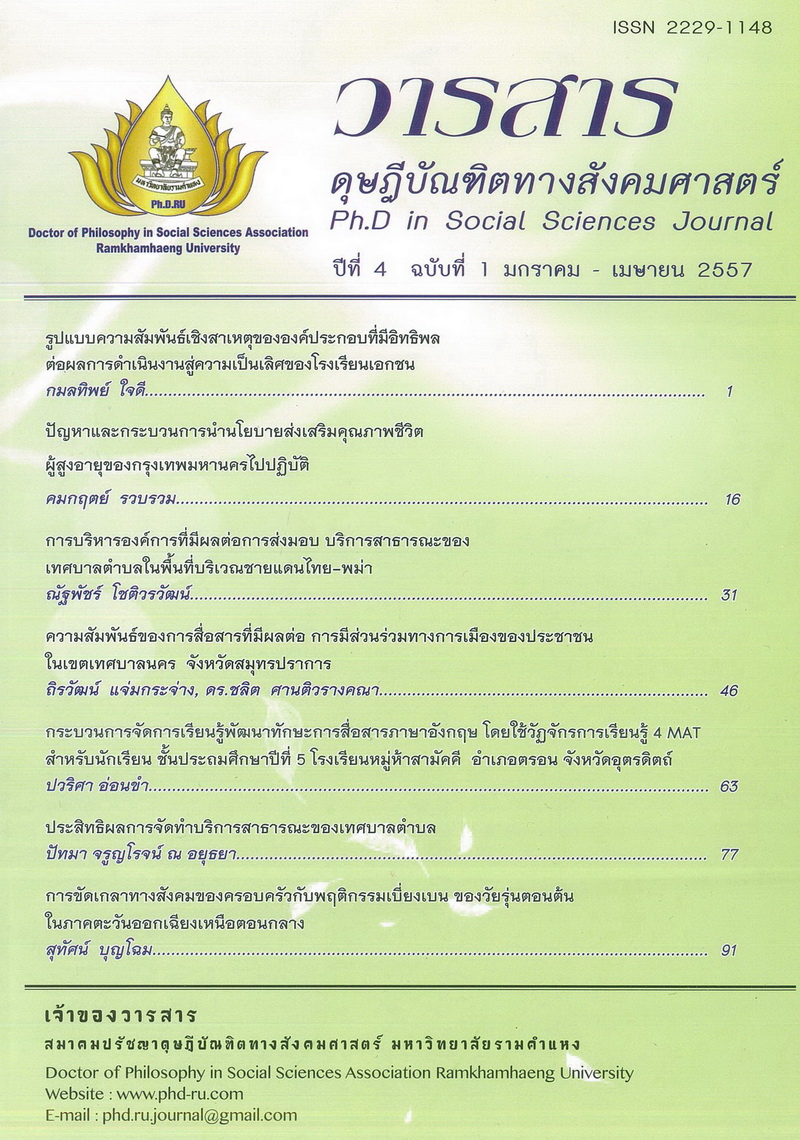การขัดเกลาทางสังคมของครอบครัวกับพฤติกรรมเบี่ยงเบนของวัยรุ่นตอนต้นในภาคตะวันออกเฉียงเหนือตอนกลาง
Main Article Content
Abstract
FAMILY SOCIALIZATION AND DEVIANT BEHAVIOR OF EARLY ADOLESCENTS IN THE CENTRAL NORTH EASTERN REGION
In this dissertation, the researcher investigates the socialization and familial relationships of early adolescents, as well as the effects and ways to solve problems encountered in this connection. The researcher also examines family socialization insofar as it affects the deviant behaviors of early adolescents. The researcher employed a mixed methodology, though stress was placed on qualitative research. The researcher conducted in-depth interviews with key informants consisting of currently at-risk students at the Juvenile Observation and Protection Center, thirty-four students from secondary schools, twenty parents or guardians of at-risk students, and ten experts. Using a qualitative approach, data were subsequently analyzed and interpreted using the technique of coding as an application of grounded theory methodology. In the quantitative research phase, the researcher surveyed the opinions of 243 at-risk students and 217 parents or guardians.
Findings are as follows: The are four types of family socialization: (1) serving as a role model; (2) admonishing children at times and occasions that are inappropriate; (3) being distant and not showing love for children believing that doing so will spoil them; and (4) not teaching life skills to children, especially when it comes to young parents who do not have the ability to train children.
In regard to familial relationship, it was found that more frequently early adolescents whose behaviors were deviant came from families in which parents lived together rather than families in which the parents lived separately. Parental communication with these early adolescents was negative as exemplified by confrontational talk, drawing invidious comparisons with other children, and parents expressing opinions that differed from those of their children. Concerning parenting styles, there are three styles: (1) authoritarian; (2) permissive; and (3) authoritative. All of these three styles may not be constantly maintained and can shift into semi-authoritarian and semi-permissive styles.
Article Details
Academic articles, research articles, and book reviews in the Ph.D. in Social Sciences Journal are author’s opinions, and not the publisher’s, and is not the responsibility of the Ph.D. in Social Sciences Journal Philosophy Association, Ramkhamhaeng University. (In the case that research is done on human, the researcher has to be trained in Ethics for Doing Research on Human Training and has to produce the evidence of the training).


